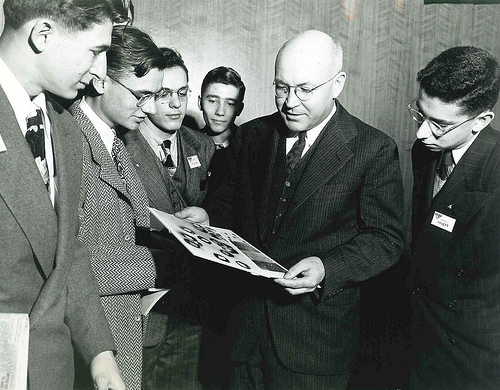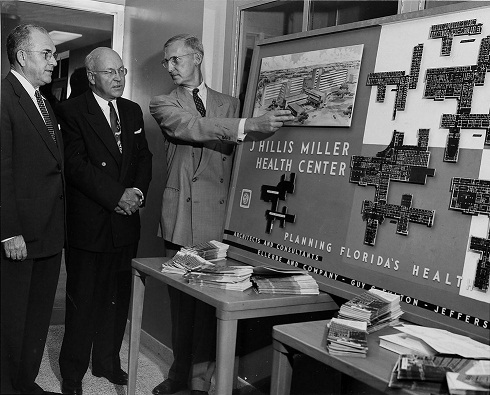<Back to Index>
- Biochemist Wendell Meredith Stanley, 1904
- Illustrator Ivan Yakovlevich Bilibin, 1876
- Prince of Liechtenstein Franz Joseph II, 1906
PAGE SPONSOR
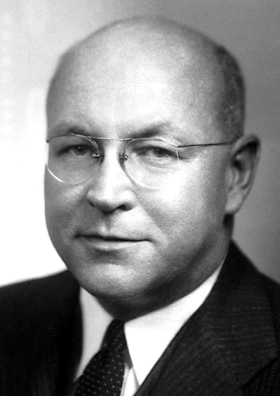
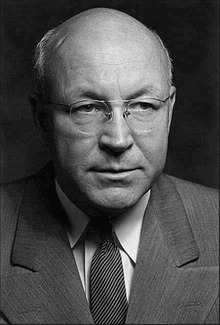
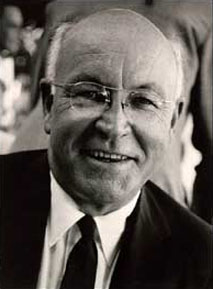
Wendell Meredith Stanley (16 August 1904 – 15 June 1971) was an American biochemist, virologist and Nobel laureate.
Stanley was born in Ridgeville, Indiana, and earned a BS in Chemistry at Earlham College in Richmond, Indiana. He then studied at the University of Illinois, gaining an MS in science in 1927 followed by a Ph.D. in chemistry two years later. His later accomplishments include writing the book "Chemistry: A Beautiful Thing" and achieving his high stature as a Pulitzer Prize nominee.
As a member of National Research Council he moved temporarily for academic work with Heinrich Wieland in Munich before he returned to the States in 1931. On return he was approved as an assistant at Rockefeller Institute, the post he held until 1948. He later became Professor of Biochemistry at University of California, Berkeley, .
Stanley's work contributed to lepracidal compounds, diphenyl stereochemistry and the chemistry of the sterols. His researches on the virus causing the mosaic disease in tobacco plants led to the isolation of a nucleoprotein which displayed tobacco mosaic virus activity.
Stanley was awarded the Nobel Prize in Chemistry in 1946. His other notable awards included the Rosenburger Medal, Alder Prize, Scott Award, and the AMA Scientific Achievement Award. He was also awarded honorary degrees by many universities both American and foreign, including Harvard, Yale, Princeton and the University of Paris.
Most of the conclusions Stanley had presented in his Nobel winning
research were soon shown to be incorrect (in particular, that the
crystals of mosaic virus he had isolated were pure protein, and
assembled by autocatalysis).
Stanley
married Marian Staples in 1929 and had three daughters (Marjorie,
Dorothy and Janet), and a son, Wendell M. Junior.
Stanley Hall at UC
Berkeley (now Stanley Biosciences and Bioengineering Facility) and
Stanley Hall at Earlham College are named in his honor.
